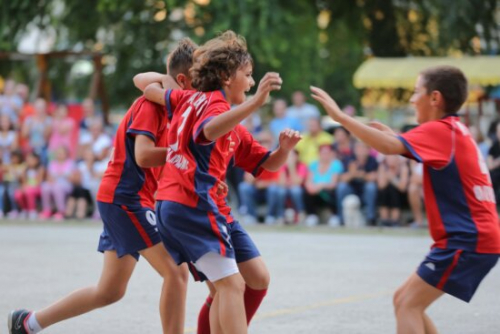Culture for All: Why Football Matters

Next up in our series of short films about culture and cultural democracy is a film by Martin Cloake on football, followed by the text of his talk
Football is the great passion for so many of us. Going to the match is an escape, a chance to be a part of a community, a connection with memories and traditions and people we value. And, despite the efforts of some, it’s still a game where the outcome isn’t known in advance. It’s the hope that gets you, as we always say.
We need to value it more, this thing of ours. Because it is still ours, however much the modern game seems bent out of shape. We worry that it’s a business, but it became a business largely to make sure it was accessible to ordinary people. If players weren’t paid, the only people who could play when the game was first being established were those who could afford not to be paid. Gentleman amateurs not paid professionals.
Football and Progressive Politics
I’ve always thought football illustrates one of the key challenges for progressive politics. We worry about the making of money when we should worry more about what is done with the money we make. It’s the fans who save clubs when business interests give up on them, because fans realise the true value of the business. The disconnect comes when the business becomes just about making money, rather than about making money to make a better business.
But why do we talk so much about feeling a lack of connection? It’s because we still value the game, our clubs, the feelings the activity of going to the match generates. It’s a spectator sport, but one of the things we value most is the physical participation in the spectacle. Being there is important. And people being there is important to the ‘product’ that is sold on TV. The crowd plays a bigger part in football than any other sport.
Football without fans is nothing has become a bit of a cliché. But we’ve recently seen that games played in front of empty stands don’t provide the same quality of product. Fans count. We play our part. We need to assert ourselves more.
The clubs we built can be bought and sold by anyone who claims to have the money. And once they have bought in, club owners are under no obligation to retain the colours, the badge, the name or even the club’s location. They take business decisions designed to get rich quick, and then blame the fans for wanting success too fast when it goes wrong. And when it goes wrong, it’s the fans who are left to sort it out.
The worst thing we can do is accept that football is just another product. The fact that the culture we created is used so often to sell the game we made back to us shows that those doing the selling recognise the power we have.
Our game is too important to be left to business interests to buy and sell like a product on a shelf. It’s too important to be left unregulated and unprotected. We need to preserve the integrity of competition in the face of business interests that want to guarantee success. We need to recognise that clubs are the products of communities and what community means today. We need to cherish and defend the health of the collective game, to recognise that while our clubs compete there is a common interest in every club thriving. We need to harness the power of the game to bring people together and achieve good things.
Cultural democracy in football
Above all, we need to see ourselves as active participants. Get involved in your club supporters' group. Believe you have a right to question and hold accountable the people who make decisions. Make good football governance an issue that our Members of Parliament take seriously. Believe you have the right and the ability to influence the way the game we created is run.
You can trace a social, economic and political history of our country by reading the names of its football clubs. That’s part of the reason the game is so embedded. It’s part of what we are. And it gives us a chance to express our identity and our ingenuity.
Football was once described as the most important of the unimportant things. And it is. It’s easy not to love much of what the game has become, but the fact that you’re still watching this five minutes after I said the word football says something. Our game means something to us, because it’s still the people’s game.
